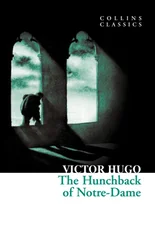Victor Hugo - The Man Who Laughs
Здесь есть возможность читать онлайн «Victor Hugo - The Man Who Laughs» — ознакомительный отрывок электронной книги совершенно бесплатно, а после прочтения отрывка купить полную версию. В некоторых случаях можно слушать аудио, скачать через торрент в формате fb2 и присутствует краткое содержание. Жанр: literature_19, foreign_antique, foreign_prose, на английском языке. Описание произведения, (предисловие) а так же отзывы посетителей доступны на портале библиотеки ЛибКат.
- Название:The Man Who Laughs
- Автор:
- Жанр:
- Год:неизвестен
- ISBN:нет данных
- Рейтинг книги:3 / 5. Голосов: 1
-
Избранное:Добавить в избранное
- Отзывы:
-
Ваша оценка:
- 60
- 1
- 2
- 3
- 4
- 5
The Man Who Laughs: краткое содержание, описание и аннотация
Предлагаем к чтению аннотацию, описание, краткое содержание или предисловие (зависит от того, что написал сам автор книги «The Man Who Laughs»). Если вы не нашли необходимую информацию о книге — напишите в комментариях, мы постараемся отыскать её.
The Man Who Laughs — читать онлайн ознакомительный отрывок
Ниже представлен текст книги, разбитый по страницам. Система сохранения места последней прочитанной страницы, позволяет с удобством читать онлайн бесплатно книгу «The Man Who Laughs», без необходимости каждый раз заново искать на чём Вы остановились. Поставьте закладку, и сможете в любой момент перейти на страницу, на которой закончили чтение.
Интервал:
Закладка:
Two or three times the little infant cried. Then he adopted in his gait a rocking movement, and the child was soothed and silenced. She ended by falling into a sound sleep. Shivering himself, he felt her warm. He frequently tightened the folds of the jacket round the babe's neck, so that the frost should not get in through any opening, and that no melted snow should drop between the garment and the child.
The plain was unequal. In the declivities into which it sloped the snow, driven by the wind into the dips of the ground, was so deep, in comparison with a child so small, that it almost engulfed him, and he had to struggle through it half buried. He walked on, working away the snow with his knees.
Having cleared the ravine, he reached the high lands swept by the winds, where the snow lay thin. Then he found the surface a sheet of ice. The little girl's lukewarm breath, playing on his face, warmed it for a moment, then lingered, and froze in his hair, stiffening it into icicles.
He felt the approach of another danger. He could not afford to fall. He knew that if he did so he should never rise again. He was overcome by fatigue, and the weight of the darkness would, as with the dead woman, have held him to the ground, and the ice glued him alive to the earth.
He had tripped upon the slopes of precipices, and had recovered himself; he had stumbled into holes, and had got out again. Thenceforward the slightest fall would be death; a false step opened for him a tomb. He must not slip. He had not strength to rise even to his knees. Now everything was slippery; everywhere there was rime and frozen snow. The little creature whom he carried made his progress fearfully difficult. She was not only a burden, which his weariness and exhaustion made excessive, but was also an embarrassment. She occupied both his arms, and to him who walks over ice both arms are a natural and necessary balancing power.
He was obliged to do without this balance.
He did without it and advanced, bending under his burden, not knowing what would become of him.
This little infant was the drop causing the cup of distress to overflow.
He advanced, reeling at every step, as if on a spring board, and accomplishing, without spectators, miracles of equilibrium. Let us repeat that he was, perhaps, followed on this path of pain by eyes unsleeping in the distances of the shadows – the eyes of the mother and the eyes of God. He staggered, slipped, recovered himself, took care of the infant, and, gathering the jacket about her, he covered up her head; staggered again, advanced, slipped, then drew himself up. The cowardly wind drove against him. Apparently, he made much more way than was necessary. He was, to all appearance, on the plains where Bincleaves Farm was afterwards established, between what are now called Spring Gardens and the Parsonage House. Homesteads and cottages occupy the place of waste lands. Sometimes less than a century separates a steppe from a city.
Suddenly, a lull having occurred in the icy blast which was blinding him, he perceived, at a short distance in front of him, a cluster of gables and of chimneys shown in relief by the snow. The reverse of a silhouette – a city painted in white on a black horizon, something like what we call nowadays a negative proof. Roofs – dwellings – shelter! He had arrived somewhere at last. He felt the ineffable encouragement of hope. The watch of a ship which has wandered from her course feels some such emotion when he cries, "Land ho!"
He hurried his steps.
At length, then, he was near mankind. He would soon be amidst living creatures. There was no longer anything to fear. There glowed within him that sudden warmth – security; that out of which he was emerging was over; thenceforward there would no longer be night, nor winter, nor tempest. It seemed to him that he had left all evil chances behind him. The infant was no longer a burden. He almost ran.
His eyes were fixed on the roofs. There was life there. He never took his eyes off them. A dead man might gaze thus on what might appear through the half-opened lid of his sepulchre. There were the chimneys of which he had seen the smoke.
No smoke arose from them now. He was not long before he reached the houses. He came to the outskirts of a town – an open street. At that period bars to streets were falling into disuse.
The street began by two houses. In those two houses neither candle nor lamp was to be seen; nor in the whole street; nor in the whole town, so far as eye could reach. The house to the right was a roof rather than a house; nothing could be more mean. The walls were of mud, the roof was of straw, and there was more thatch than wall. A large nettle, springing from the bottom of the wall, reached the roof. The hovel had but one door, which was like that of a dog-kennel; and a window, which was but a hole. All was shut up. At the side an inhabited pig-sty told that the house was also inhabited.
The house on the left was large, high, built entirely of stone, with a slated roof. It was also closed. It was the rich man's home, opposite to that of the pauper.
The boy did not hesitate. He approached the great mansion. The double folding-door of massive oak, studded with large nails, was of the kind that leads one to expect that behind it there is a stout armoury of bolts and locks. An iron knocker was attached to it. He raised the knocker with some difficulty, for his benumbed hands were stumps rather than hands. He knocked once.
No answer.
He struck again, and two knocks.
No movement was heard in the house.
He knocked a third time.
There was no sound. He saw that they were all asleep, and did not care to get up.
Then he turned to the hovel. He picked up a pebble from the snow, and knocked against the low door.
There was no answer.
He raised himself on tiptoe, and knocked with his pebble against the pane too softly to break the glass, but loud enough to be heard.
No voice was heard; no step moved; no candle was lighted.
He saw that there, as well, they did not care to awake.
The house of stone and the thatched hovel were equally deaf to the wretched.
The boy decided on pushing on further, and penetrating the strait of houses which stretched away in front of him, so dark that it seemed more like a gulf between two cliffs than the entrance to a town.
CHAPTER IV.
ANOTHER FORM OF DESERT
It was Weymouth which he had just entered. Weymouth then was not the respectable and fine Weymouth of to-day.
Ancient Weymouth did not present, like the present one, an irreproachable rectangular quay, with an inn and a statue in honour of George III. This resulted from the fact that George III. had not yet been born. For the same reason they had not yet designed on the slope of the green hill towards the east, fashioned flat on the soil by cutting away the turf and leaving the bare chalk to the view, the white horse, an acre long, bearing the king upon his back, and always turning, in honour of George III., his tail to the city. These honours, however, were deserved. George III., having lost in his old age the intellect he had never possessed in his youth, was not responsible for the calamities of his reign. He was an innocent. Why not erect statues to him?
Weymouth, a hundred and eighty years ago, was about as symmetrical as a game of spillikins in confusion. In legends it is said that Astaroth travelled over the world, carrying on her back a wallet which contained everything, even good women in their houses. A pell-mell of sheds thrown from her devil's bag would give an idea of that irregular Weymouth – the good women in the sheds included. The Music Hall remains as a specimen of those buildings. A confusion of wooden dens, carved and eaten by worms (which carve in another fashion) – shapeless, overhanging buildings, some with pillars, leaning one against the other for support against the sea wind, and leaving between them awkward spaces of narrow and winding channels, lanes, and passages, often flooded by the equinoctial tides; a heap of old grandmother houses, crowded round a grandfather church – such was Weymouth; a sort of old Norman village thrown up on the coast of England.
Читать дальшеИнтервал:
Закладка:
Похожие книги на «The Man Who Laughs»
Представляем Вашему вниманию похожие книги на «The Man Who Laughs» списком для выбора. Мы отобрали схожую по названию и смыслу литературу в надежде предоставить читателям больше вариантов отыскать новые, интересные, ещё непрочитанные произведения.
Обсуждение, отзывы о книге «The Man Who Laughs» и просто собственные мнения читателей. Оставьте ваши комментарии, напишите, что Вы думаете о произведении, его смысле или главных героях. Укажите что конкретно понравилось, а что нет, и почему Вы так считаете.












